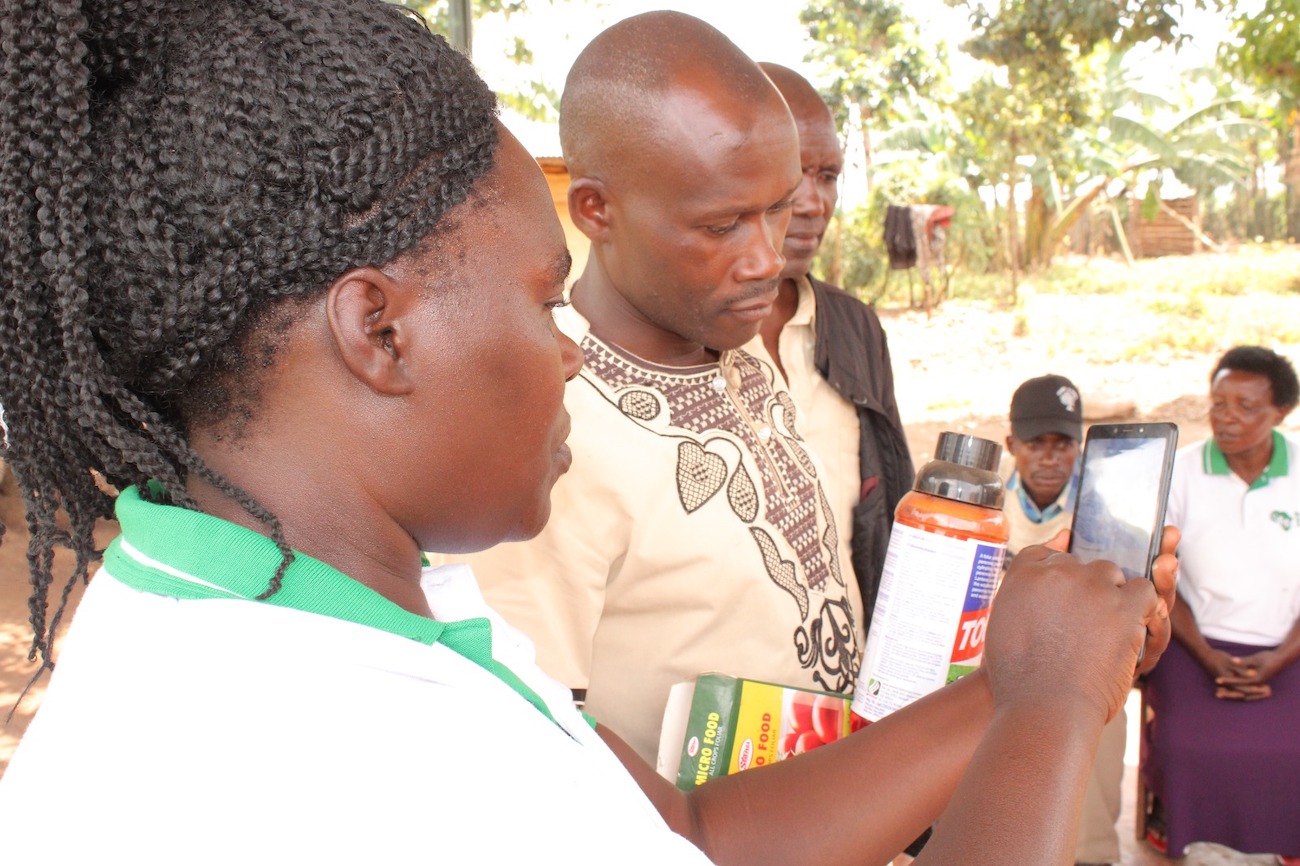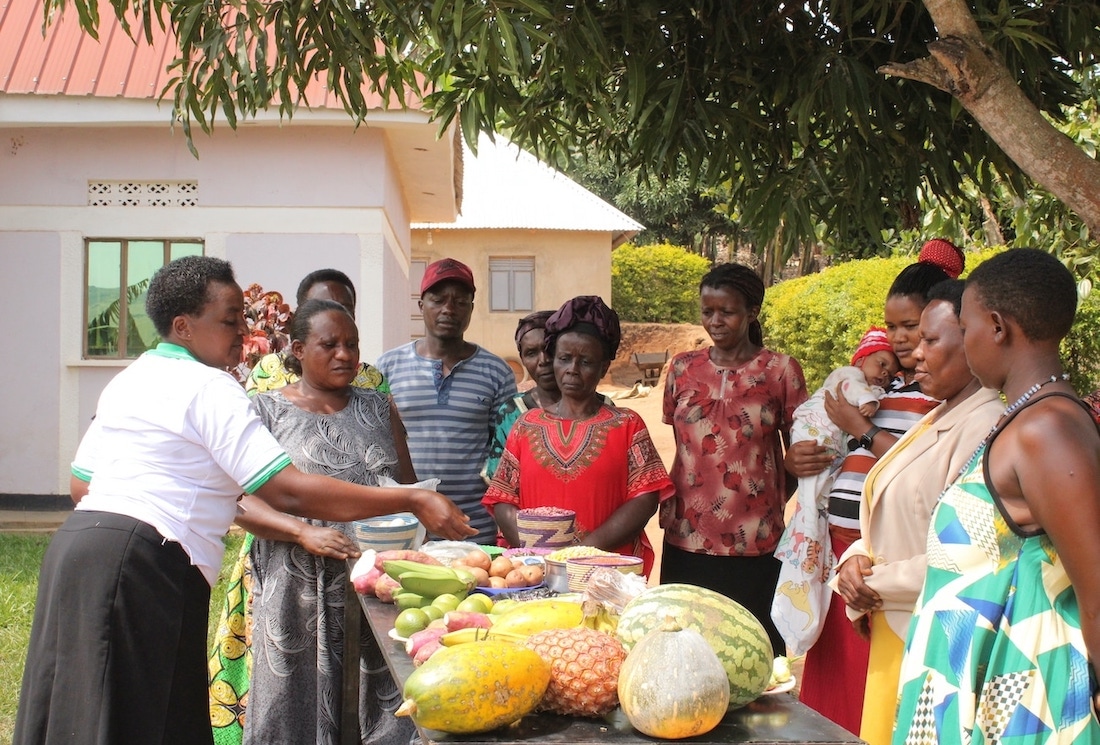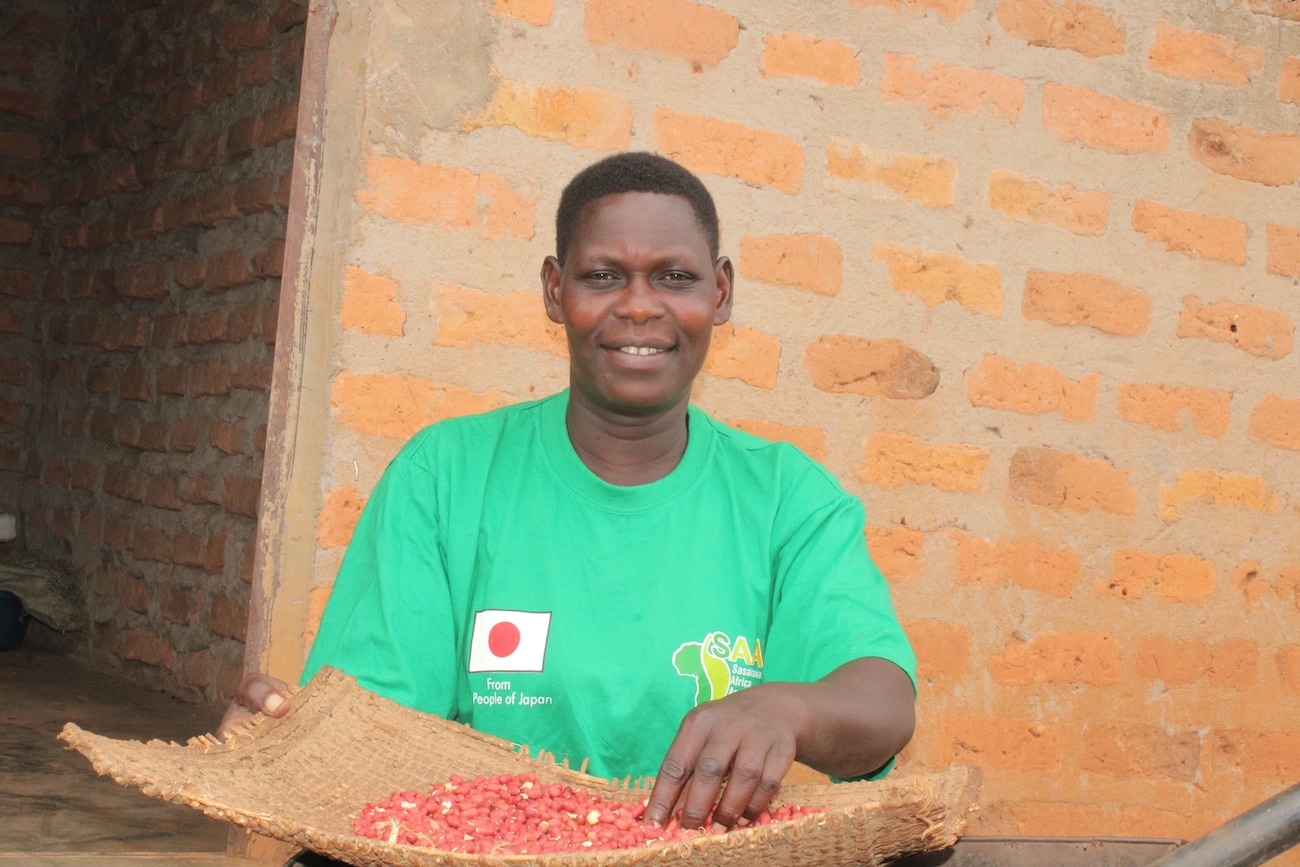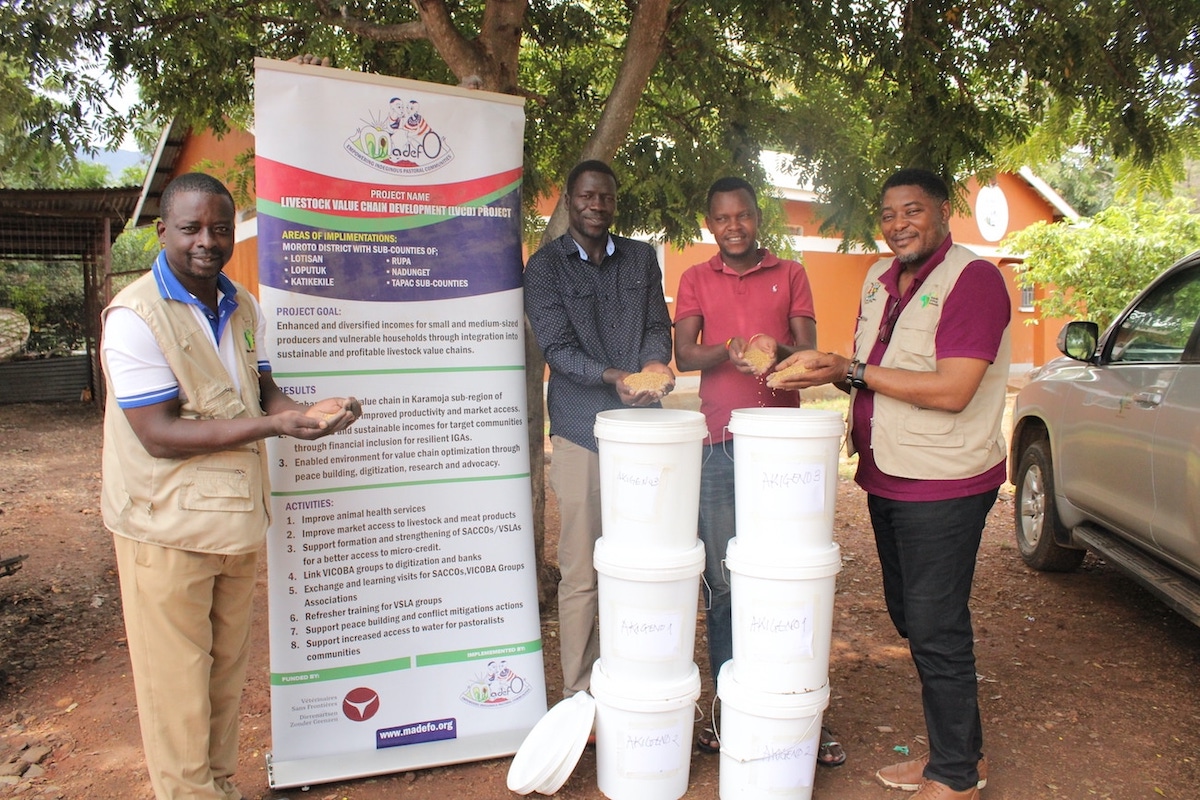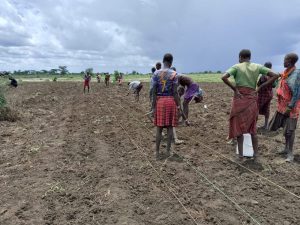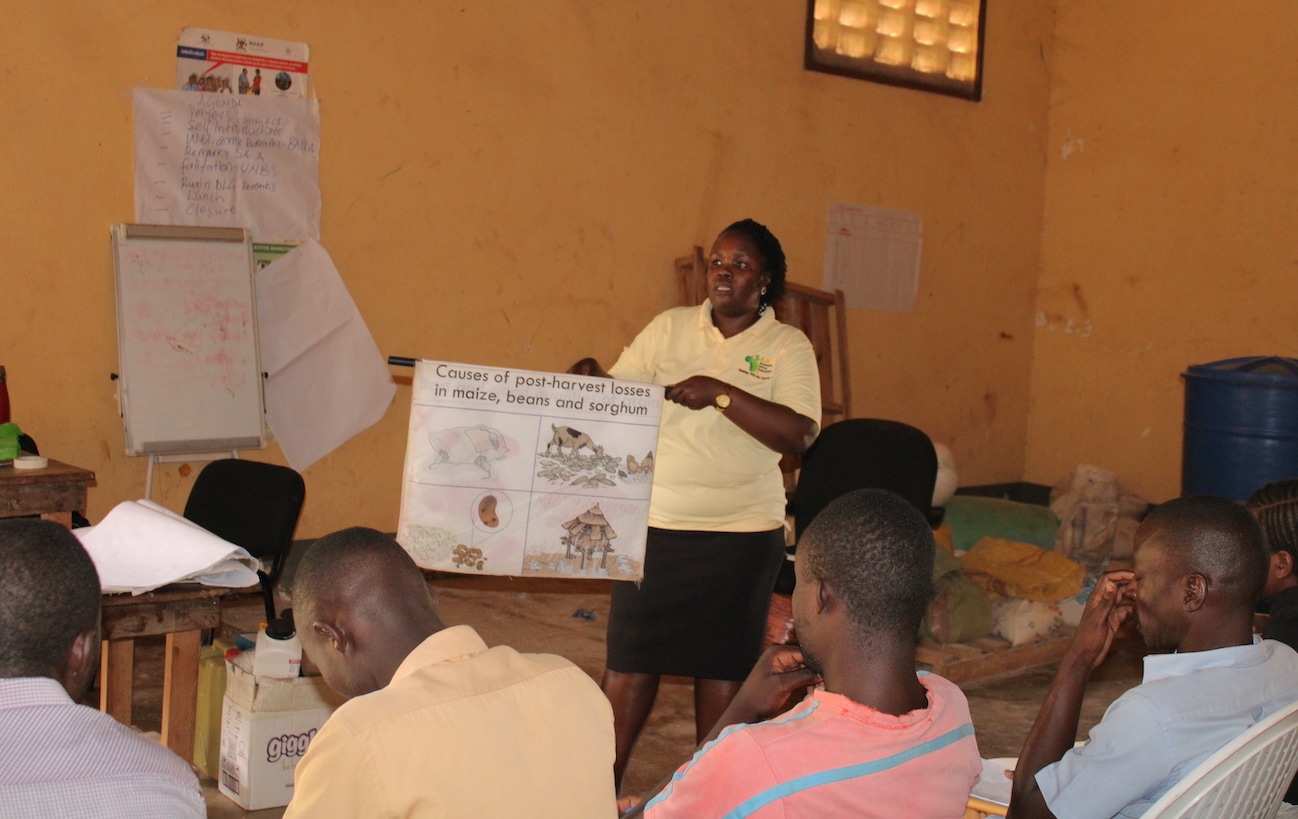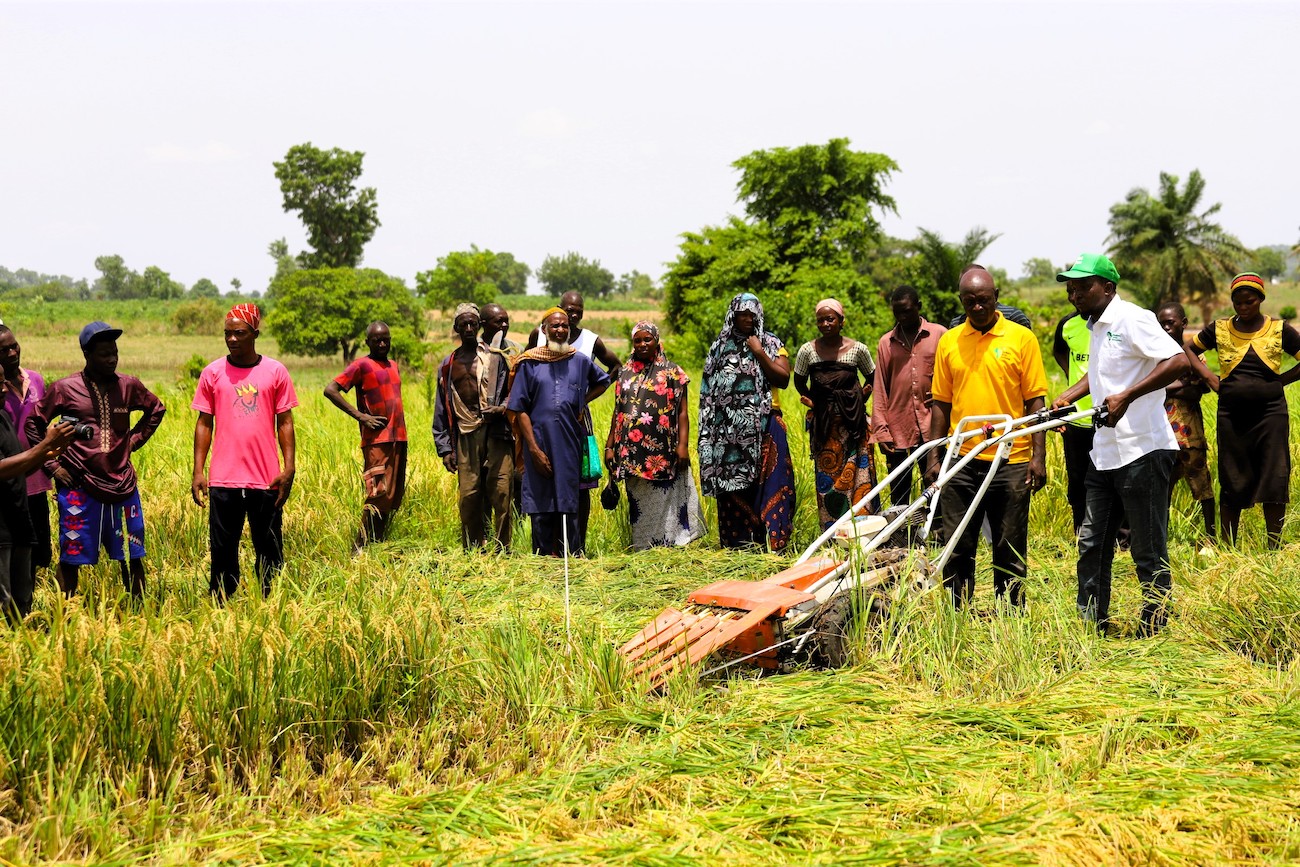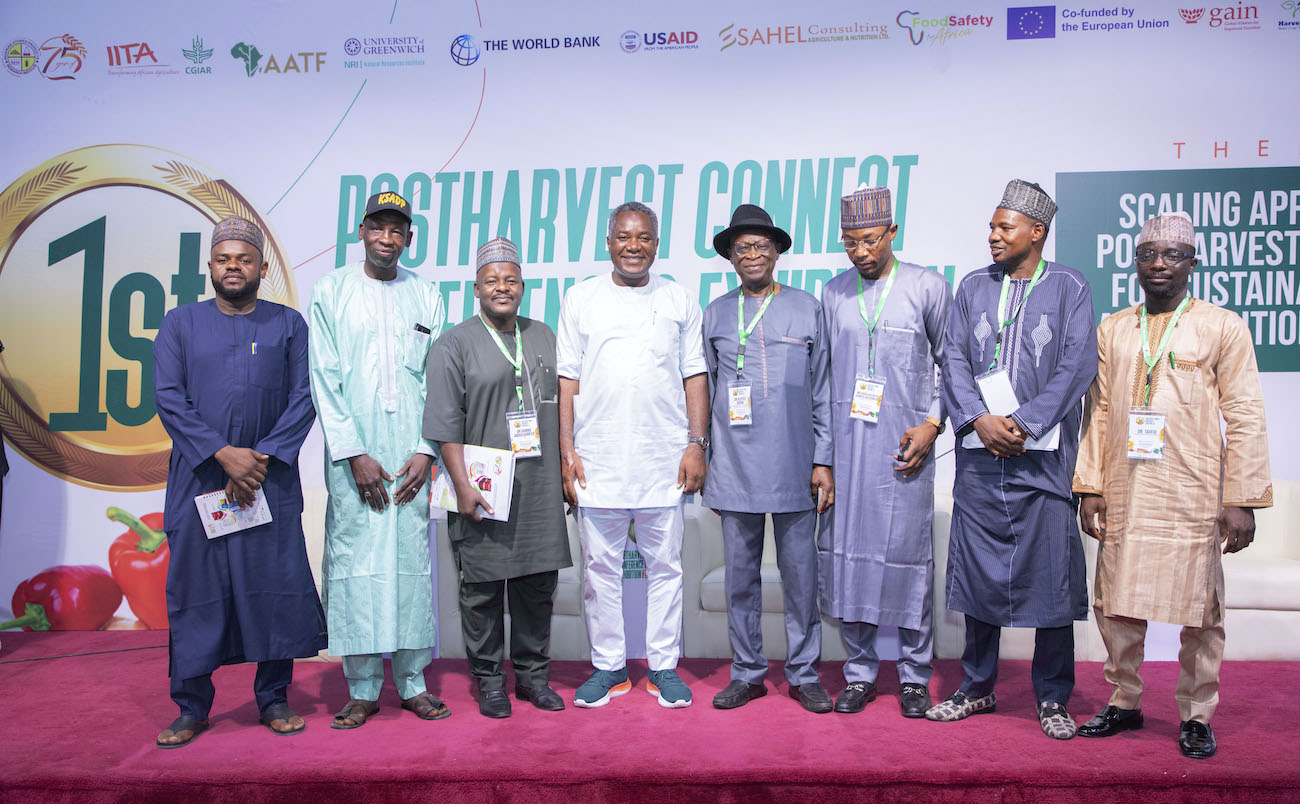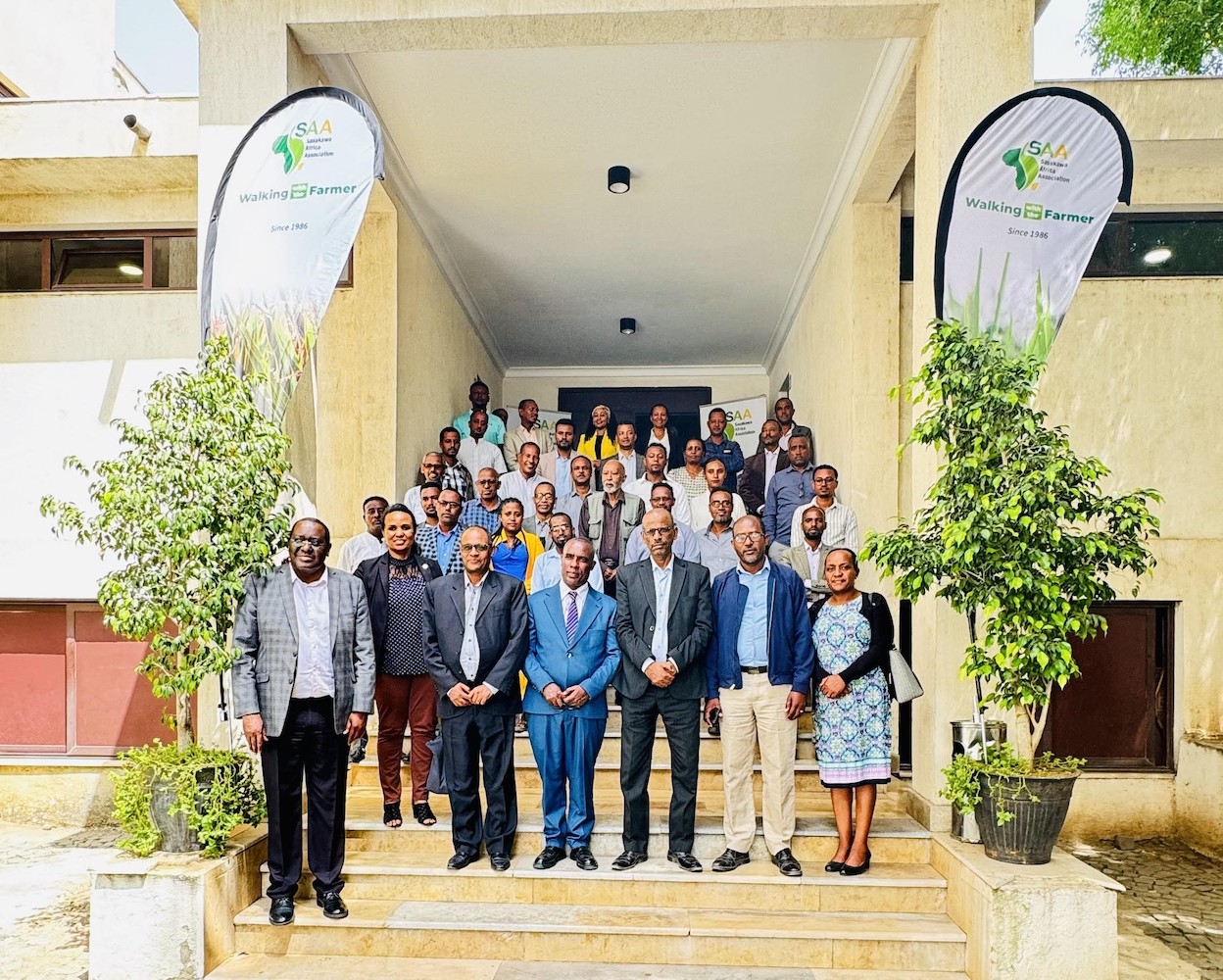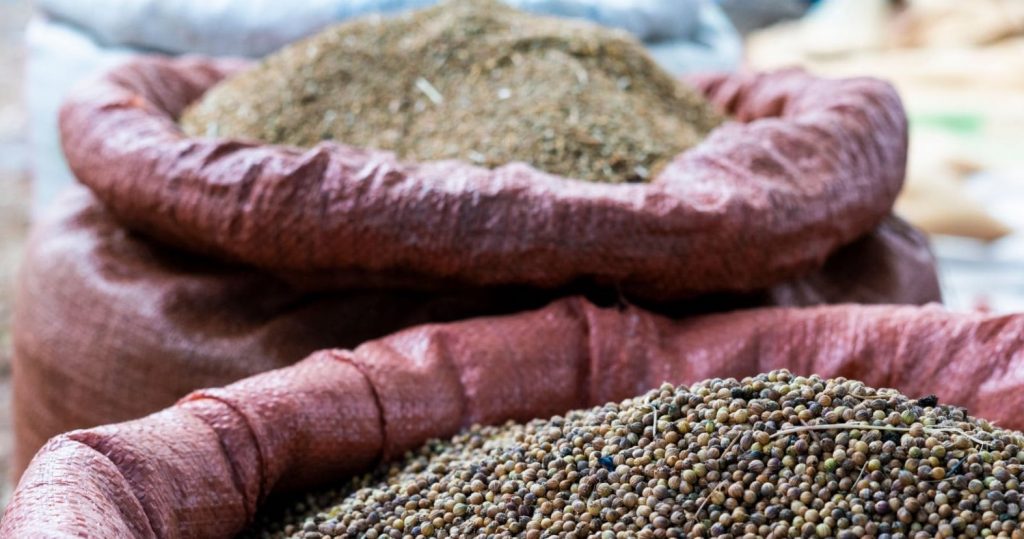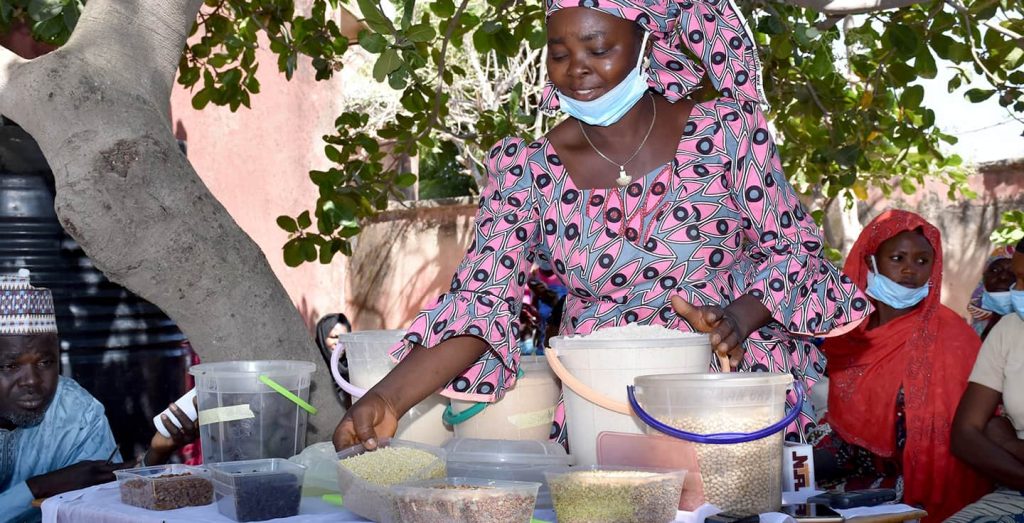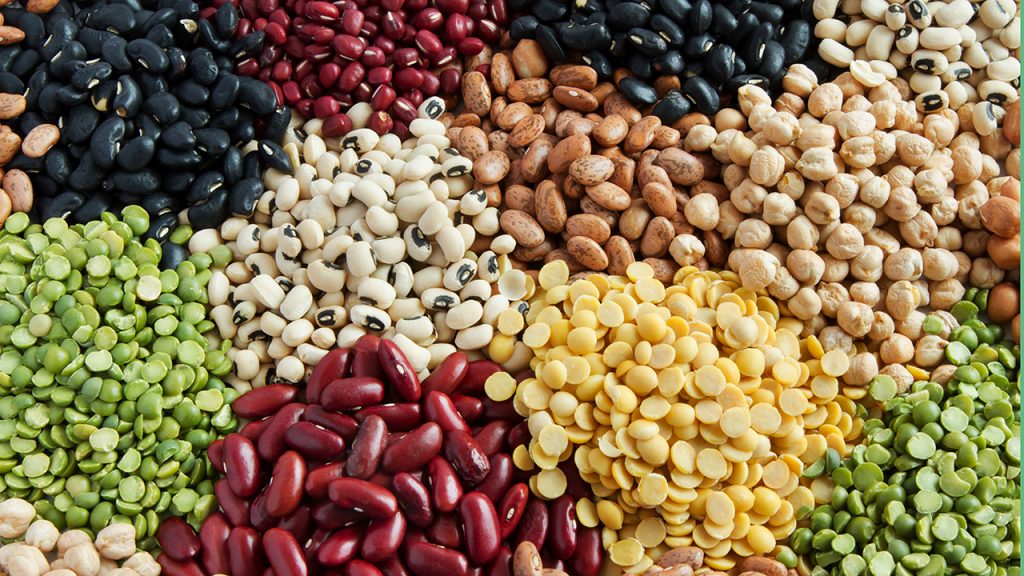Focus on Uganda
June 2024
Remarks from the Country Director
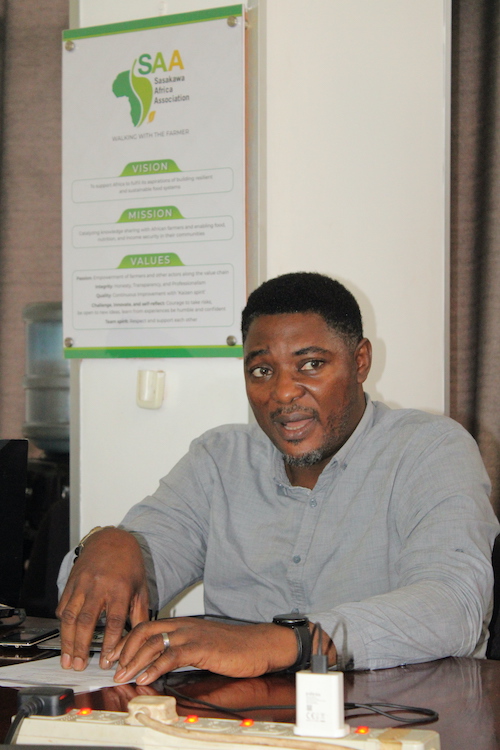
Remarks from the Country Director
Dear Reader,
Reflecting on the accomplishments of the Sasakawa Africa Association-Uganda (SAA-Uganda), I am filled with pride and optimism. Our work, supported by partners like the Nippon Foundation and the Ministry of Foreign Affairs of Japan, has enabled Ugandan farmers to enhance their livelihoods, embrace new technologies, and contribute to food security. Initiatives promoting regenerative agriculture (RA), nutrition-sensitive agriculture (NSA), and market-oriented agriculture (MOA) are fostering community development.
Our success is rooted in partnerships that transform lives. In collaboration with the Uganda National Bureau of Standards (UNBS), we have equipped farmers with essential skills in produce handling, standardization, and certification, enhancing agribusinesses and inspiring communities.
Remarkable achievements by groups and individual farmers exemplify our programs’ impact. Through targeted training in NSA, post-harvest management, and RA, farmers are developing resilient agricultural systems, characterized by higher yields and diversified income sources.
The stories in this newsletter highlight the impact of collaboration, innovation, and resilience, embodying SAA’s mission of empowering smallholder farmers as embedded in our mantra, “Walking with the Farmer.”
Alum Scovia, a 42-year-old widow from Tee-abolo Cell village, is one of the smallholder farmers that have transformed her life through SAA’s support. Joining the Bala Women and Youth Cooperative, she turned her small land into a thriving enterprise, significantly improving her family’s income and nutrition.
Mama Sarah’s journey also highlights our impact. Learning RA and post-harvest management, she improved yields and income, securing her children’s education and uplifting her family’s standards.
The Kihanda Tukorenyentya Group also adopted RA practices and gender inclusion, boosting their income, and strengthening community cohesion.
Meanwhile, climate change remains a priority for the farmers we engage with. In this newsletter, you will read about Sserwada Saidi, a father of 13 who adopted RA to tackle climate change, reduce costs, and improve soil health, sustainably enhancing biodiversity and crop yields.
Such stories demonstrate SAA’s commitment to transforming farmers’ income, livelihood, and nutrition. By empowering communities, we sow the seeds of progress and prosperity across Uganda.
Finally, we have a story about our groundbreaking initiative to introduce wheat farming in Karamoja. SAA delivered drought-resistant wheat seeds in Moroto District, testing their adaptability to Karamoja’s climate. This bold venture promises food security, economic growth, job creation, and improved living standards across Uganda.
Thank you for your continued support in transforming agriculture in Uganda. Let’s celebrate these achievements and drive further positive change.
Warm regards,
Robert Anyang.
VOICES FROM THE FIELD
VOICES FROM THE FIELD
Ugandan Farmer Increases Maize Yields 46% through Sustainable Agricultural Practices
For years, farming techniques of Sserwada Saidi, a 46-year-old father of 13, who lives in Kibanga Village, Kiboga District, relied on traditional methods like intense ploughing, grain seed recycling, and monocropping. These practices led to soil depletion, lower yields, and increased costs. In 2020, after participating in a training program by the Sasakawa Africa Association (SAA), Saidi adopted regenerative agriculture (RA) techniques. These included minimum tillage, intercropping with proper spacing, mulching, organic fertilization, and integrated pest and disease management, along with certified seeds.
This shift marked a turning point, and in 2021, he established two half-acre demonstration plots for beans, placing one under RA and the other under conventional practice. The plot under RA yielded 200 kg more than the one that was conventionally managed, with a 40% reduction in production costs due to optimized use of fertilizer and agro-chemicals following SAA’s Integrated Soil Fertility Management (ISFM) approach. The next year, expanding to maize and beans on more acreage, he harvested over 1,500 kg of maize and 550 kg of beans, earning UGX 2,400,000 (USD 682). Intercropping maize and beans increased yields by 46% for maize and 26% for beans compared to monoculture.

By 2023, Saidi’s maize harvest from two acres reached 4,000 kg, significantly boosting his income. His production costs also decreased by 30-40%. Recognized for his success, SAA appointed him as a Community-Based Facilitator to train others in RA. Looking forward, Saidi plans to expand his farm, integrate more RA practices, and increase his livestock, aiming to further enhance his farm’s productivity.
For the full story: https://www.saa-safe.org/news/news.php?nt=2&vid=593&lng=usa
VOICES FROM THE FIELD
VOICES FROM THE FIELD
Ezyagric Digital Platform Transforms the Livelihoods of Farmers in Ugandan Village
Farmers in Lutete village of Madudu subcounty, in Uganda’s Mubende district, are reporting a six-fold yield increase for maize and beans after implementing agronomic advice dispensed through Ezyagric, a digital platform promoted by the Sasakawa Africa Association (SAA) with funding from the Nippon Foundation.
Dorothy Namuli, a 41-year-old mother of seven, is now able to comfortably educate her children after Ezyagric’s guidance and input linkages helped her grow her bean harvests from one bag to seven bags per acre, and her maize yields from four to eleven bags per acre. In the same village, Teo Munyebanza, a 37-year-old father of seven, having learnt regenerative agriculture practices and proper fertilizer application techniques through the Ezyagric platform, now harvests at least 18 bags/acre of maize, 15 bags/acre of beans and 22 bags/acre of Irish potatoes.
“The improved yields have made me a role model in my community. Neighbors often ask for my advice on which fertilizers and pesticides to use,” he said.
Namuli, Munyebanza and many other farmers, were introduced to Ezyagric by a Community-based Facilitator, Aisha Nakibule. After receiving training from SAA, Nakibulue, a 44-year-old mother of 10, has helped connect many farmers to the platform. She had encountered multiple struggles as a farmer, including poor soil quality that led to low productivity. After recruitment and training as an Ezyagric local champion, she has introduced over 300 farmers in her community to the platform. Her influence and coordination led to the purchase of inputs worth UGX 26 million (USD 6,922) in the first season of 2024, earning her UGX 200,000 (USD 54) in commissions.

“The extra income from Ezyagric helps me pay school fees for my children or cover household expenses,” she said.
For the full story: https://www.saa-safe.org/news/news.php?nt=2&vid=594&lng=usa
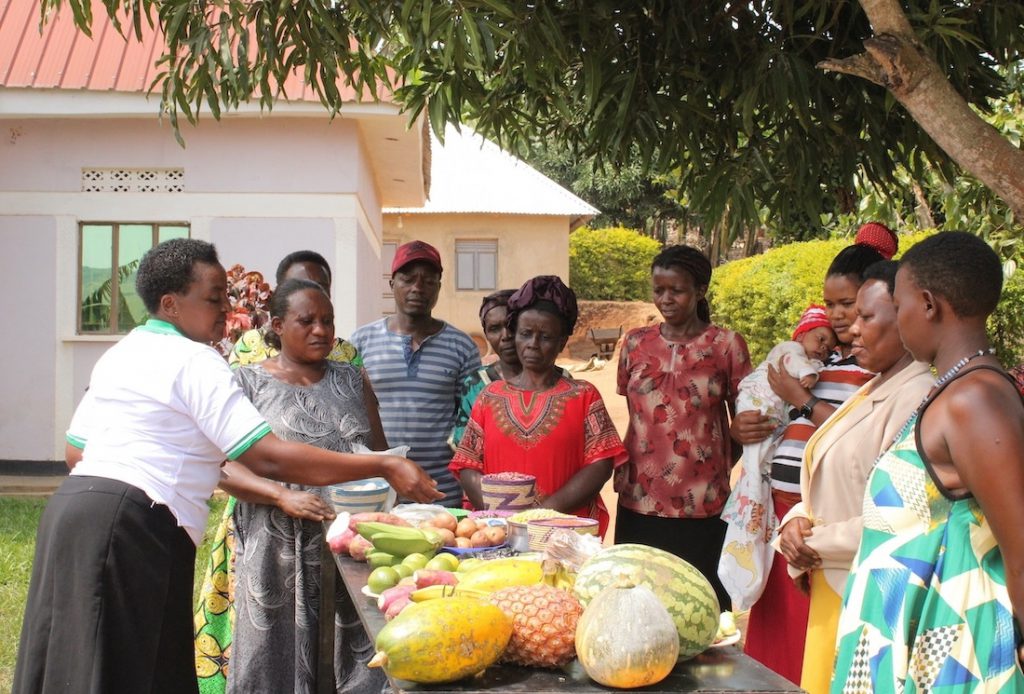
VOICES FROM THE FIELD
VOICES FROM THE FIELD
Ugandan Women’s Group Thrives After Agribusiness Training
Maureen Kamiru, a 64-year-old farmer, formed the Kihanda Tukorenyentya Women’s Group in 2017 with a vision of empowering women in her community. Starting with just seven members who pooled a modest USD 19 in savings, the group aimed to address prevalent issues of hunger, malnutrition, and poverty in their district collectively.
Progress was slow until 2021, when Kamiru was selected for Sasakawa Africa Association’s Nutrition Sensitive Agriculture (NSA) program with funds from the Nippon Foundation. This program introduced her to advanced farming techniques like regenerative agriculture and nutrition-sensitive practices, along with skills in value addition and business diversification.
Upon returning to her group, which had grown to 20 members, Kamiru shared her newfound knowledge. They transitioned from traditional crops like bananas and millet to nutrient-rich alternatives such as iron-rich beans, orange-fleshed sweet potatoes, and a variety of vegetables using regenerative agriculture methods. This diversification not only improved their diets but also increased their crop yields.
With a wider range of products, the group’s earnings grew significantly. Initially saving USD 3 monthly per member, they collectively saved USD 1,460 and disbursed over USD 1,062 in loans over five months.
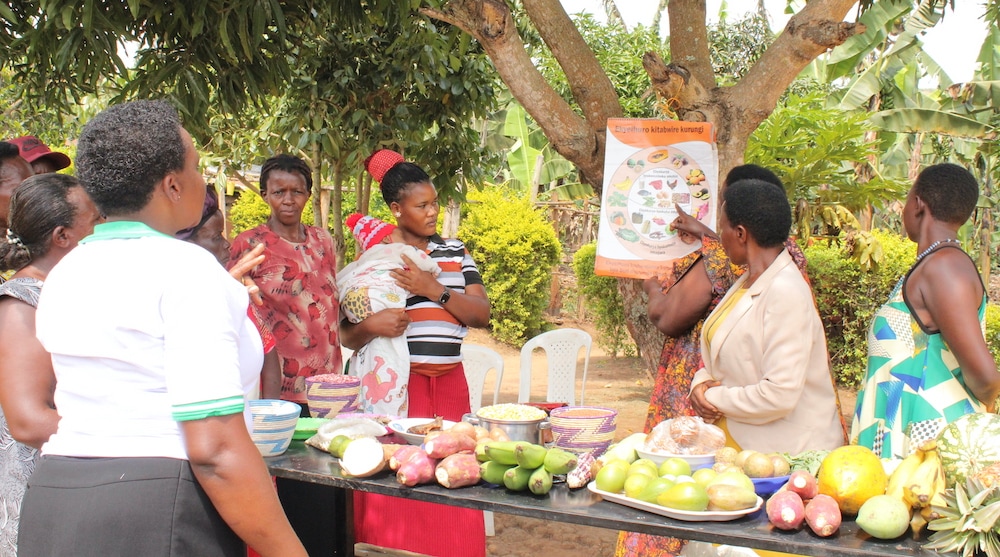
Buoyed by their success, SAA extended further support to the group by training them in baking and providing start-up kits. They began producing cakes and snacks, supplying local schools, and establishing a steady income stream. Profits from this venture were reinvested in acquiring Kroiler chicks, an improved chicken breed, which were distributed among members.
The impact was transformative. Members like Jane Wasswa, 64, started with a few chicks and eventually expanded to owning 12 goats, significantly improving their livelihoods.
Today, the Kihanda Tukorenyentya Women’s Group stands as a beacon of transformation in their community, demonstrating the potential of sustainable agriculture practices and strategic business acumen united under a common goal of empowerment.
For the full story: https://www.saa-safe.org/news/news.php?nt=2&vid=595&lng=usa
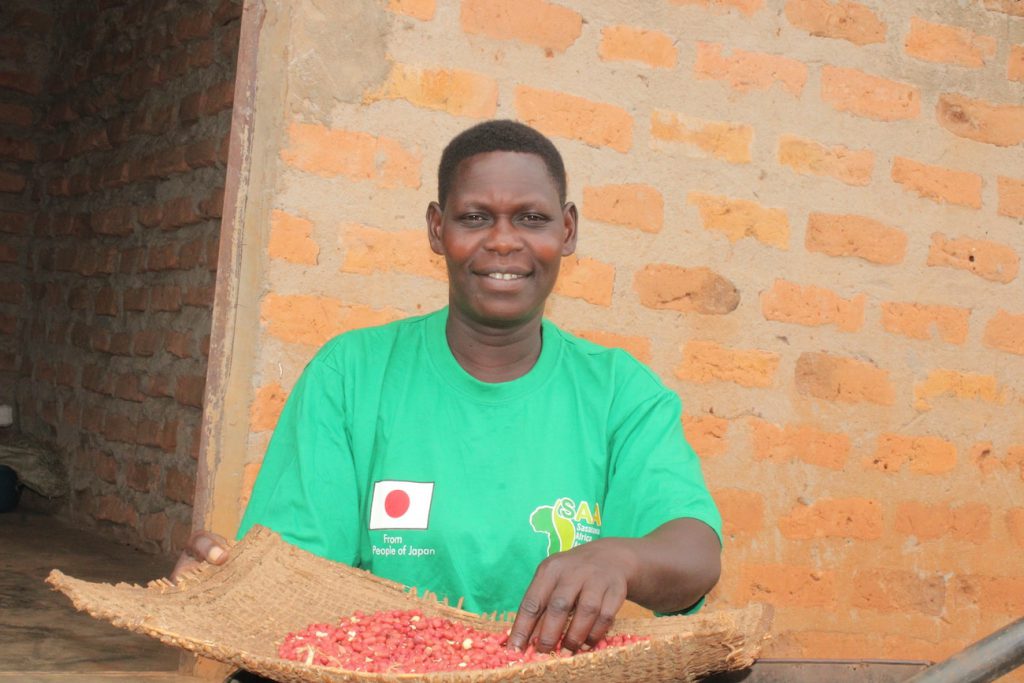
VOICES FROM THE FIELD
VOICES FROM THE FIELD
A Journey from Struggle to Triumph Through Cooperative Empowerment
Alum Scovia, a 42-year-old single parent from Tee-abolo village in Uganda’s Kole district, faced significant challenges following her husband’s death in 2019. With limited resources, she struggled to support her family until she found hope through the Bala Women and Youth Cooperative, part of the One Stop Center Association (OSCA) initiative led by the Sasakawa Africa Association (SAA) and funded by Japan’s Ministry of Foreign Affairs.
Joining the cooperative provided Alum with training in agribusiness, transforming her approach to farming into a viable enterprise. She developed a business plan focusing on purchasing groundnuts from local farmers and reselling them after processing. By 2023, supported by the Balaa OSCA savings group, she borrowed UGX 600,000 (USD 154) to kickstart her entrepreneurial venture. She acquired a manual groundnut sheller for UGX 250,000 (USD 64) and expanded her operations to include the processing of nuts sourced from other farmers alongside her own cultivation. The remaining funds after the equipment’s purchase were invested in the direct procurement of groundnuts from local farmers, leveraging the cooperative’s network and fostering mutual relationships within her community.
Alum’s products gained popularity in her village and Lira City due to their high quality and cleanliness. Her fair pricing strategy ensured consistent sales, meeting her family’s needs including education expenses and adequate meals.
Increased income enabled Alum to fully repay her OSCA loan in less than a year. Beyond business success, she actively engages in OSCA activities such as maintaining a demonstration garden and promoting cleanliness, earning stipends and occasional vegetable harvests. She now ensures her children receive an education and plans to expand further by increasing processing capacity, acquiring a motorcycle for efficient distribution and constructing a storage facility. She also aims to diversify into vegetable production by leasing additional land.
For the full story: https://www.saa-safe.org/news/news.php?nt=2&vid=596&lng=usa
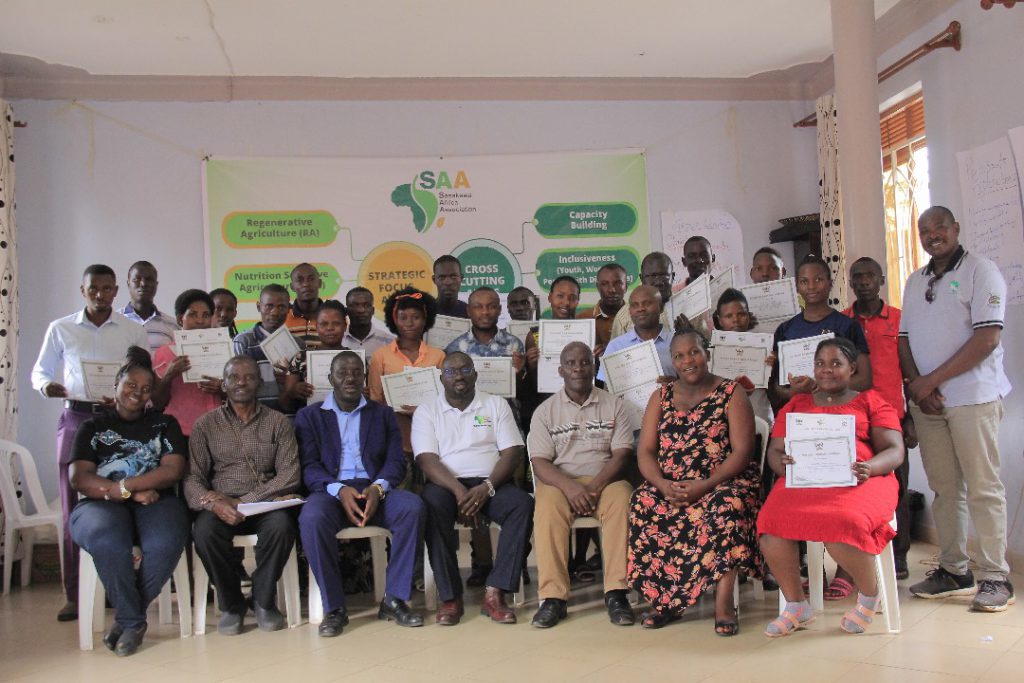
ACTIVITIES
ACTIVITIES
Ugandan Farmers Trained on Safe Pesticide Use to Prevent Environmental Degradation
In March 2024, the Sasakawa Africa Association (SAA) partnered with Uganda’s Ministry of Agriculture, Animal Industry and Fisheries (MAAIF) for a five-day training program aimed at building the capacity of agro-input dealers to provide advisory support on reducing the adverse impact of pesticides on the environment.
The session was crucial as it equipped participants with knowledge on how proper management and use of agrochemicals can contribute to the mitigation of climate change and bolster food security for communities. A total of 21 participants (9 women) from various districts attended training, covering topics ranging from types of pesticide to safe application techniques, effective pest management strategies, and Uganda’s agricultural chemical regulations.
The training included hands-on exercises and discussions, facilitated with a training manual developed by Makerere University. At the conclusion, participants underwent assessment and certificates in Safe-Use of Pesticides validating their competence in responsible pesticide handling and application.
Watch this news report on the activity: https://youtu.be/XjCSvXT-T_s?si=xAhVhIhILqR-80Hq
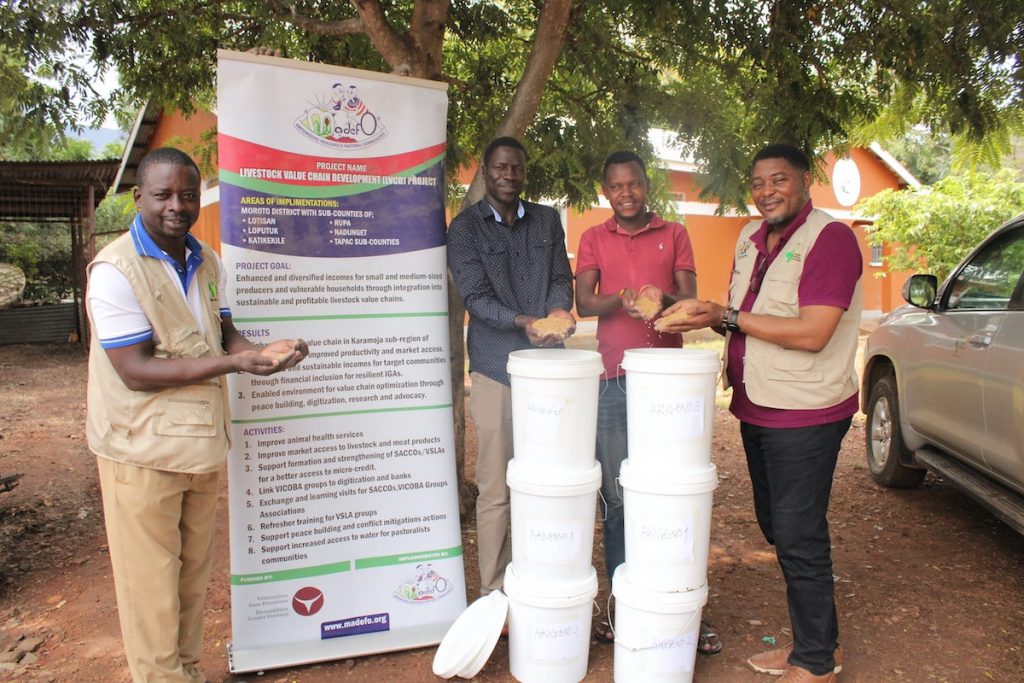
ACTIVITIES
ACTIVITIES
Wheat Farming Holds Great Promise of Transforming the Karamoja Region
In April 2024, the Sasakawa Africa Association (SAA), Matheniko Development Forum (MADEFO) and the Uganda Development Forum (UDF) introduced wheat farming to Karamoja, a semi-arid region in northeastern Uganda where livestock production is the dominant mode of livelihood.
Wheat is vital to Uganda’s food ecosystem, particularly in the bakery sector, and has vast economic potential. An anticipated increase in demand, driven by urbanization and changing dietary habits, underscores the need to expand its cultivation.
The Karamoja region was selected for its vast expanses of land, ideal for wheat production. At full production, the initiative is expected to boost agricultural productivity, increase food security and household incomes, create employment opportunities, and enhance the living standards of farmers in the region.
“This wheat initiative is gaining support from those who initially did not appreciate the idea. As we speak, we are recruiting more followers to support it,” said MADEFO’s Executive Director, Jeremiah Logit.
Under the programme, three drought-resistant wheat seed varieties — Angeno 1, Angeno 2, and Angeno 3 — are being trialed in the Moroto district for their adaptability and resilience to Karamoja’s demanding climate.
Already, there are signs of success as the first harvest season approaches. The sight of green wheat fields amidst intense heat and drought instills hope, symbolizing the promise of a better future.
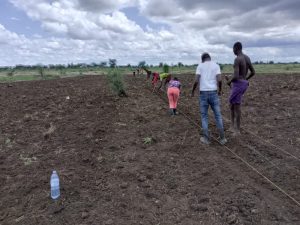
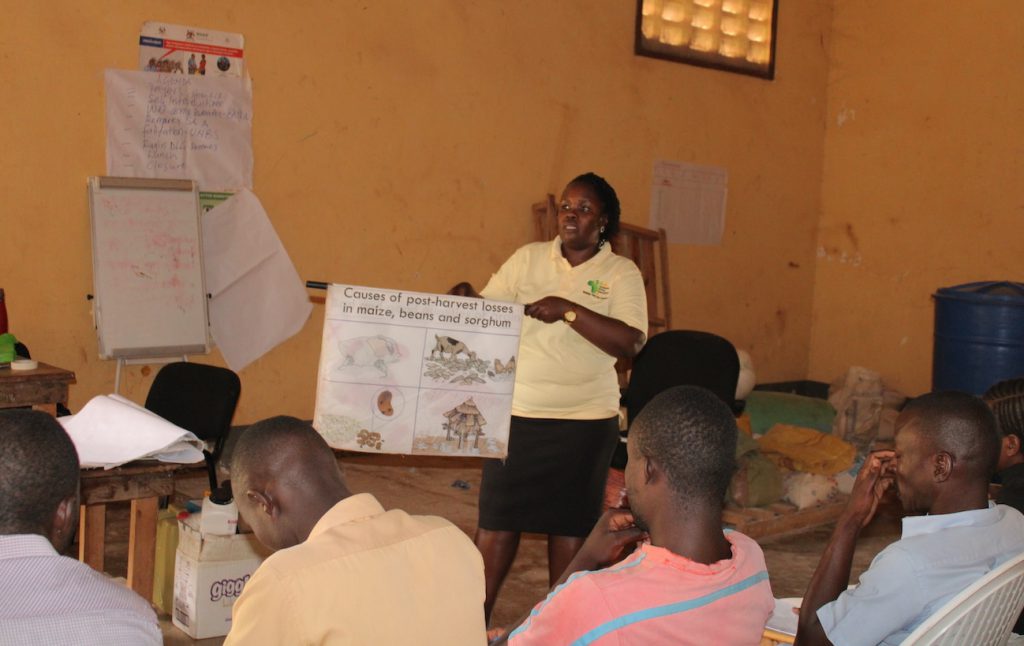
ACTIVITIES
ACTIVITIES
Improving Harvest Handling for Enhanced Sales
From March 19-24, 2024, 85 farmers (35 women) in Uganda gathered to enhance their knowledge of post-harvest management and food safety. Among them was Mama Sarah, a mother of four, eager to improve her farming knowledge and expertise. Over three days, trainers from the Sasakawa Africa Association (SAA) and the Uganda National Bureau of Standards (UNBS) provided comprehensive instruction on these critical topics.
The training encompassed lectures, demonstrations, and hands-on sessions. Practical activities included aflatoxin testing and moisture content determination, which enabled farmers to better understand and apply the principles discussed.
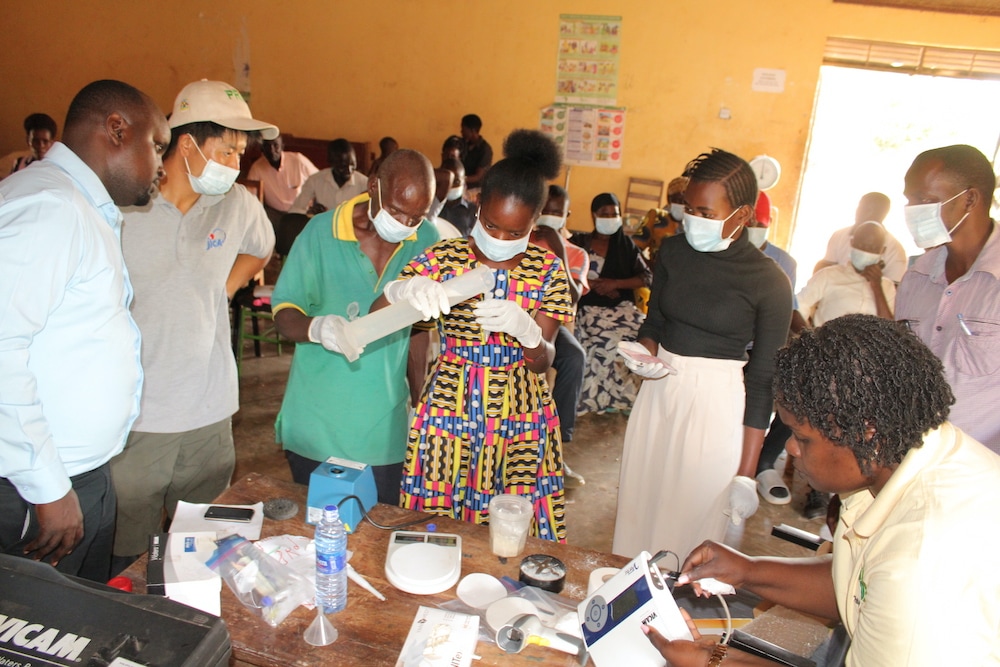
Mama Sarah was particularly enthusiastic about the newfound knowledge, feeling empowered to store her crops properly for optimal sales.
“This training has been an eye-opener; I never realized how much we were losing due to poor handling. Now, I feel confident that I can store my crops properly and sell them for a better price,” she remarked.
NEWS AND ACTIVITIES FROM OTHER SAA COUNTRIES

NEWS AND ACTIVITIES FROM OTHER SAA COUNTRIES
NEWS AND ACTIVITIES FROM OTHER SAA COUNTRIES
Farmers Learn About Regenerative Agriculture at Green Field Days in Nigeria and Benin
In April and May 2024, The Sasakawa Africa Association (SAA) organized a series of successful farmer field days known as Green Field Days, spanning seven communities across Nigeria (April 23-28) and the Republic of Benin (May 28-30). This initiative was part of SAA’s Evidence-Based Regenerative Agriculture to Address Climate Change in Africa a project funded by the African Development Bank (AfDB).
In Nigeria’s Nasarawa State, the Green Field Days attracted 382 participants (129 women), from Doma and Lafia Local Government Areas.
Dr. Godwin Atser, SAA-Nigeria’s Country Director, highlighted the impact of climate change on farmer productivity and emphasized the role of regenerative agriculture in enhancing resilience.
Farmers experienced firsthand the benefits of advanced agricultural practices and technologies on demonstration plots. These included high-yielding rice and maize varieties, biochar application, urea deep placement for efficient fertilizer use, water management techniques, transplanting methods, mulching, and e-kakashi for real-time field data collection. SAA technical staff demonstrated how these practices improve yields, enhance soil health and fertility by sequestering carbon in the soil, and mitigate climate change.
Participants expressed enthusiasm about the potential of these innovations. A male farmer praised the FARO 66 rice variety for its tillering ability, foreseeing higher yields. A female participant echoed his sentiment, eager to adopt these efficient practices on her farm next season.
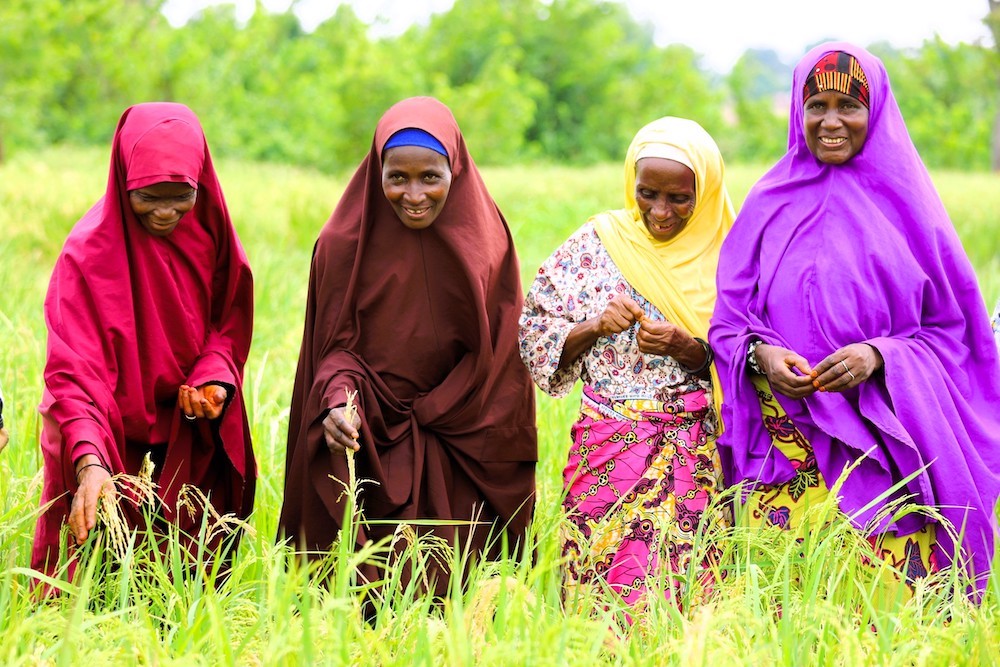
Similar Green Field Days were conducted in the Zogbodomey, Lele, and Lalo districts of Benin, involving 164 farmers (49 women) and 16 local government agricultural extension officials. The events introduced farmers to high-yielding rice varieties and technologies aimed at boosting rice production.
Overall, these field days demonstrated SAA’s commitment to advancing sustainable agriculture and empowering farmers with practical solutions to combat climate challenges in Africa.
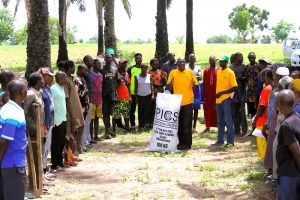

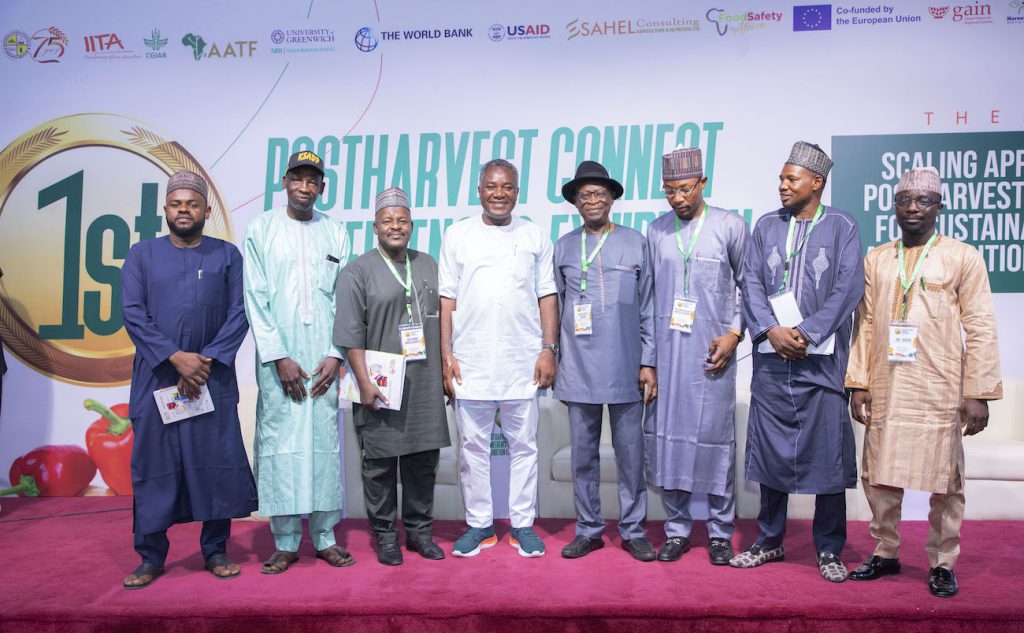
NEWS AND ACTIVITIES FROM OTHER SAA COUNTRIES
NEWS AND ACTIVITIES FROM OTHER SAA COUNTRIES
SAA – Nigeria Showcases Achievements at Pioneering Postharvest Conference
In April 2024, SAA-Nigeria showcased its impactful partnership with the Kano State Agricultural Development Programme (KSADP) at the inaugural Postharvest Connect Conference and Exhibition held in Abuja. Organized by the Nigerian Stored Products Research Institute (NSPRI), the conference addressed the critical issue of postharvest losses in Nigeria’s agricultural sector.
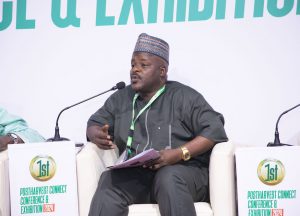
Dr Godwin Atser, SAA-Nigeria’s Country Director, emphasized the project’s commitment to promoting sustainable postharvest management practices and technologies. This dedication is evident in the efforts to link smallholder farmers in Kano with essential postharvest facilities and equipment. Additionally, the establishment of community-based modern processing and storage centers across the state strengthens the project’s impact.
During the conference, Abdulrasheed Hamisu, the KSADP/SAA Project Coordinator, presented the project’s comprehensive initiatives that directly target postharvest losses. These initiatives include installing aerated onion storage technology facilities, introducing solar tent vegetable dryers, providing crop threshers, and establishing rice and flour milling centers across all 44 local government areas (LGAs) in Kano State. Furthermore, agro-processing centers have been established in five LGAs, with 139 operators trained to effectively manage them.
The KSADP-SAA project goes beyond infrastructure development to train farmers and processors on proper postharvest handling, covering various topics, including the timing of harvests, crop drying techniques, moisture management, safe storage practices, and grain drying equipment.
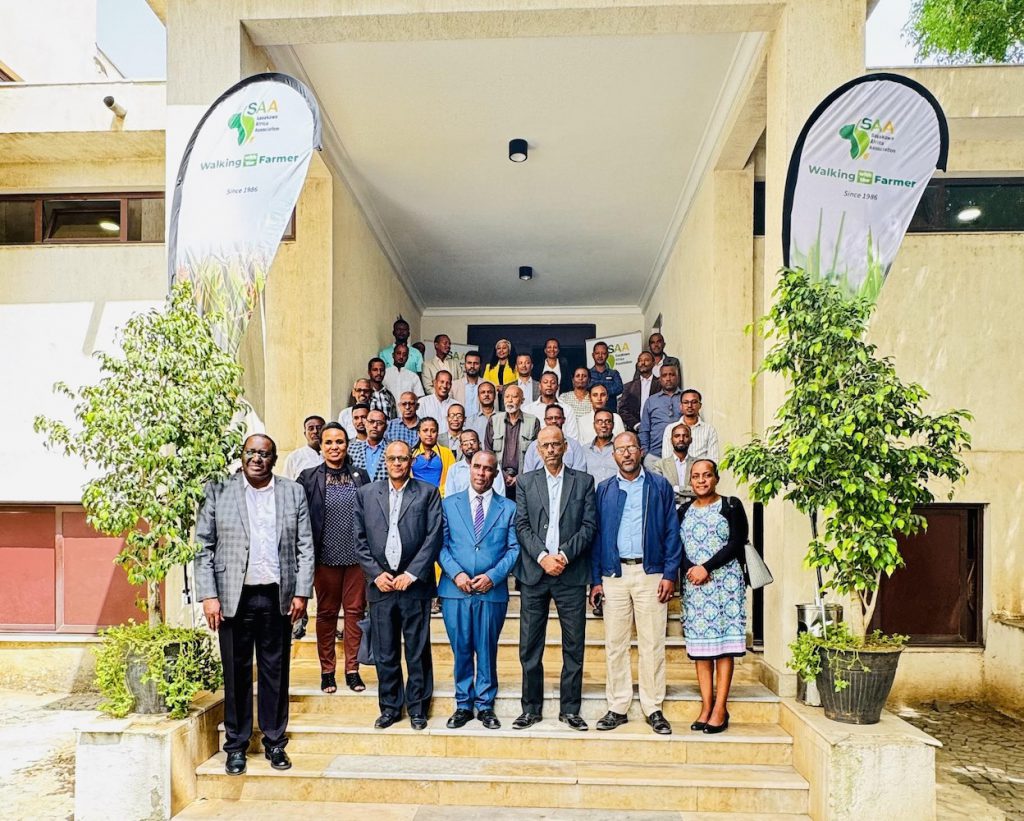
NEWS AND ACTIVITIES FROM OTHER SAA COUNTRIES
NEWS AND ACTIVITIES FROM OTHER SAA COUNTRIES
SAA – Ethiopia Workshop Explores Opportunities for Expanding Local Agricultural Input Production
Ethiopia’s crop production relies heavily on external inputs like seeds and fertilizers. However, global tensions, such as the Russia-Ukraine conflict, have made these inputs costly and scarce. Additionally, there are growing concerns about their environmental and health impacts. To address these challenges, the Sasakawa Africa Association (SAA) Ethiopia Office organized a workshop in Adama last May under the theme, “Harnessing Local Agricultural Inputs for Sustainable Production, Commercialization, and Utilization”. The event focused on strengthening local agricultural inputs and featured discussions on regenerative agriculture, biochar technology, and organic input production.
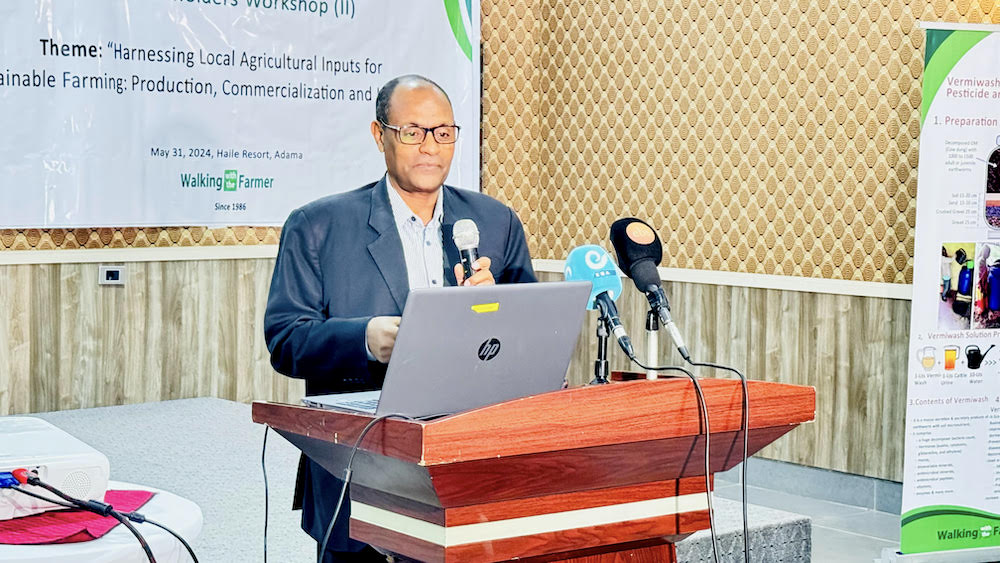
Dr. Fentahun, SAA-Ethiopia’s Country Director, highlighted the benefits of local inputs in reducing costs, saving foreign currency, and generating employment. Other speakers, including SAA’s Director of Strategic Partnerships, Dr. Mel Oluoch, emphasized the importance of traditional knowledge and highlighted the need to involve local communities in decision-making processes and knowledge sharing.

Mr. Abdusemed Abdo, representing the State Minister for Agriculture and Horticulture at the Ministry of Agriculture, stressed the need to expedite the delayed construction of local fertilizer and lime manufacturing industries. He also underscored the importance of enhancing the utilization of local inputs to meet farmers’ needs for adequate agro-inputs.
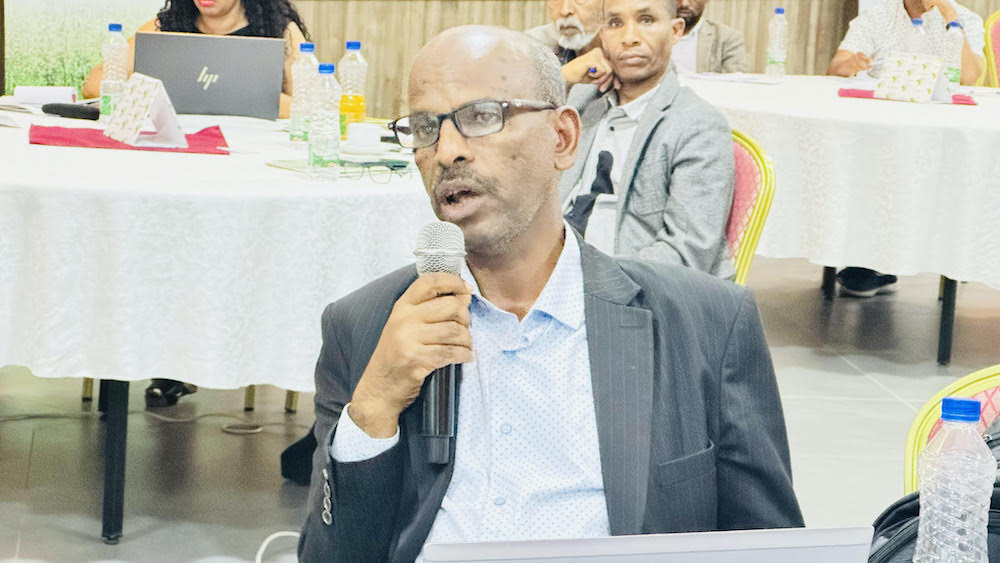
For the full story: https://www.saa-safe.org/news/news.php?nt=1&vid=592&lng=usa




